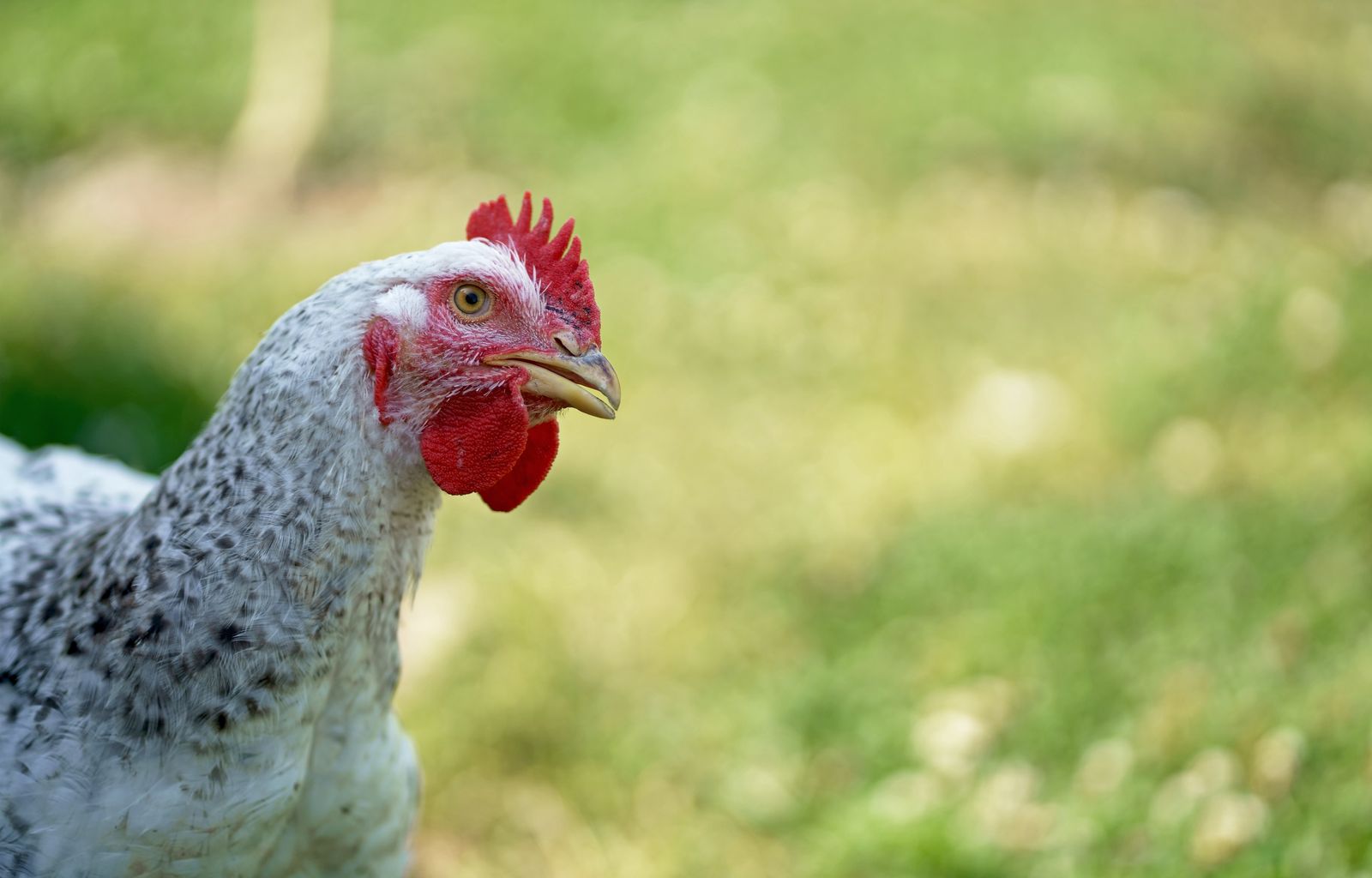Practicing self-sufficiency on the homestead means producing as much of your food yourself, and raising meat chickens is often seen as a good option for providing meat. What does it take to raise meat chickens, and is this activity worth it on the homestead?
Raising meat chickens is worth it; with costs as low as between $3.05 and $3.60 per pound, the financial savings alone can make it worthwhile. Additional benefits are healthier and more nutritious meat and the security of producing your own food. Raising meat chickens requires time and commitment.
Producing your own food, whether on a farm, a homestead, or your suburban backyard, should be looked at from a cost and time management aspect as well as the practicalities of the endeavor. We will explore whether raising meat chickens is worth it and whether you should consider including this food source in your sustainability program.
Should You Consider Raising Meat Chickens?
Raising chickens for meat is a popular practice among homesteaders, small-scale farmers, and even some urban dwellers who want to have a more sustainable and self-sufficient lifestyle.
This involves raising chickens specifically for their meat instead of raising them for eggs or as pest control on the homestead.
While raising meat chickens has its benefits, it also comes with challenges and considerations you should be aware of before jumping into this activity.
Benefits Of Raising Meat Chickens
Raising your own flock of meat chickens has many benefits over purchasing your chickens from other sources. Understanding both sides of the benefits and challenges of this type of livestock rearing will help you decide if this is a viable undertaking for you and your family.
The benefits of raising meat chickens include the following.
- Nutritional benefits. You can raise your meat chickens without antibiotics or hormones and allow them to graze on open pasture, leading to healthier and more nutritious meat. Raising your own chickens gives you more control over what they eat and how they are raised, enhancing the meat’s nutritional value.
- Cost-effectiveness. Raising your own meat chickens can be a cost-effective way to provide your family with fresh, high-quality meat. While there are initial setup costs involved, such as buying chicks and setting up a coop, the ongoing expenses are generally lower than buying meat from a grocery store.
- Personal satisfaction. Raising meat chickens can be rewarding as it allows you to be more self-sufficient and in control of your own food production. A certain satisfaction comes with raising and caring for your own animals and knowing exactly where your food comes from.
- Environmental benefits. Raising meat chickens sustainably and ethically can have positive environmental impacts. For example, allowing chickens to graze on open pastures can help improve soil quality and reduce erosion. Raising chickens without antibiotics or hormones can help reduce the environmental impact of industrial meat production.
- Increased self-sufficiency. Raising your own meat chickens can be a step towards greater self-sufficiency and sustainability. By producing your own food, you are less reliant on the industrial food system and supply chain, which can provide a sense of security in times of uncertainty.
Raising meat chickens can offer a range of benefits, from improved nutrition and cost-effectiveness to personal satisfaction and environmental sustainability.
However, it is important to consider the challenges and responsibilities of raising animals for meat before embarking on this practice.
Challenges Of Raising Meat Chickens
While raising meat chickens has its benefits, it also comes with its own set of challenges and considerations.
Some of the key challenges of raising meat chickens can include the following.
- Time and labor. Raising meat chickens requires a significant investment of time and labor. Chickens need daily care, including feeding, watering, and cleaning their living quarters. They also require regular monitoring for signs of illness or injury.
- Requires space and resources. Raising meat chickens requires adequate space and resources, including a suitable coop or housing, outdoor space for grazing, and equipment such as feeders and waterers. Chickens can also be messy, meaning their living quarters need to be cleaned regularly to prevent the buildup of bacteria and other pathogens.
- Chicken health and welfare concerns. Raising animals for meat comes with a responsibility to ensure their health and welfare. Chickens can be susceptible to a range of illnesses and diseases, and it is important to take steps to prevent and treat these issues. Giving the chickens space and activities is important to keep them entertained. These aspects create healthier, happier, tastier, and more nutritious birds.
- Slaughter and processing. Raising meat chickens also requires a plan for slaughtering and processing the birds. This can be a difficult and emotionally challenging process for some people, and it is important to have a plan in place that is both humane and effective.
- Protection from predators and pests. Chickens can be vulnerable to predators such as coyotes, foxes, raccoons, birds of prey, and pests such as mites and lice. It is important to take timeout and take quick actions to protect the chickens from these threats, such as using secure fencing and regularly treating the birds and their living quarters for pests.
In some locations, particularly within certain municipal boundaries, you may not be allowed to slaughter and process animals. You should check with your local authority before raising your own meat chickens or find a company that can handle the slaughter and processing for you.
Raising meat chickens requires a significant investment of time, resources, and care. While the benefits can be significant, it is important to consider the challenges of raising animals for meat before embarking on this practice.
Cost Analysis Of Raising Meat Chickens
Before deciding to raise meat chickens, it is important to consider the financial costs involved. While raising your own meat chickens can be cost-effective in the long run, there are initial setup costs and ongoing expenses to consider.
There are also some decisions to be made whether you are raising meat chickens for yourself or whether they are for re-sale to generate an income on the homestead.
We will exclude the cost of creating the environment to raise your meat chickens because you will have this cost no matter what type of chickens you keep.
The cost of housing your chickens can mostly be reduced by using materials on hand and building your coop and chicken run yourself.
Cost Of The Meat Chickens
The first cost of raising your own meat chickens is buying the birds as young chicks to raise for slaughter.
The costs differ depending on the age of the chicks and the breed. Buying day-old chicks is cheaper, but you could have higher losses in these young chicks, lowering your margins. Week-old chicks are a little more expensive but are a better option due to the higher survival rate.
If you are raising meat chickens for your own consumption, you can cut costs by getting in some breeding hens and a rooster and letting them breed to produce a steady supply of meat chickens.
Feed Costs For Meat Chickens
The cost of feed is one of the biggest ongoing expenses of raising meat chickens. The type of feed you use can impact the cost, with organic and non-GMO feed typically being more expensive than conventionally grown feed.
It is important to provide your meat chickens with a balanced diet to ensure their health and well-being and enhance the nutritional value and taste of the meat produced.
You can save on feed costs by free-ranging as much as possible or shopping for cheaper alternatives.
Processing Costs For Meat Chickens
If you plan to slaughter and process the chickens yourself, there may be additional costs involved in purchasing equipment such as a plucker or scalder.
If you plan to have the chickens processed by a professional, this can add additional costs to the overall operation.
Cost Of Raising Meat Chickens Summary
As a summary, we have listed the costs you can expect for raising meat chickens. The costs may vary depending on your area and the availability and costs of feed and chicks.
| Item | Cost Per B |
| Chicks (costs vary by breed, quantity, and age) | $2.20 to $2.60 each |
| Feed (Each chicken will consume 16 to 20 pounds of feed.) | $6.50 to $8.00 per bird |
| Processing costs (outsourced) | $3.50 to $3.80 per bird |
| Total cost per bird | $12.20 to $14.40 per chicken |
Given that the average weight per bird is about 4.0 pounds, the cost per pound of the meat would be between $3.05 and $3.60. Compare this to about $5.00 per pound for organic chickens in your local grocery store, and you can see that raising your own chickens is worth it from a taste, nutrition, and financial point of view.
Conclusion
Raising meat chickens can be a rewarding and beneficial practice for many people. It provides a source of fresh, high-quality meat and can be a great way to generate an income on the homestead.
Overall, raising meat chickens can be a valuable addition to any homestead, but it is important to consider the challenges, logistics, and commitment before embarking on this practice.
References


